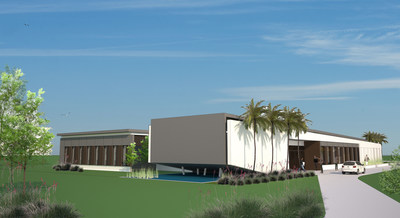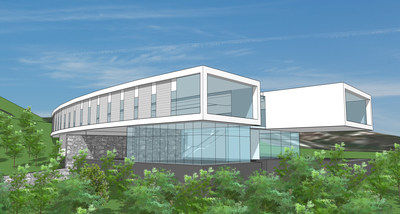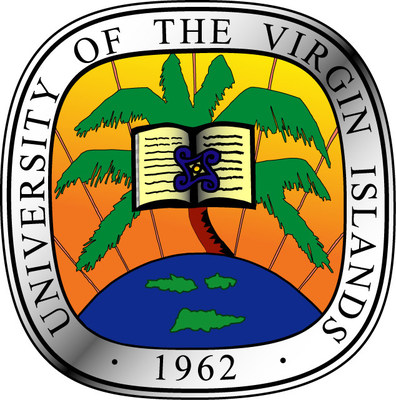The U.S. Department’s Economic Development Administration (EDA) announced on Sept. 30, that it is investing $28.6 million in the University of the Virgin Islands to support efforts to diversify and strengthen the resiliency of the economy by helping to grow the medical sector, primarily by investing in the medical school project and the medical simulation center.
|
ST. THOMAS, U.S. Virgin Islands, Oct. 1, 2019 /PRNewswire/ -- The U.S. Department's Economic Development Administration (EDA) announced on Sept. 30, that it is investing $28.6 million in the University of the Virgin Islands to support efforts to diversify and strengthen the resiliency of the economy by helping to grow the medical sector, primarily by investing in the medical school project and the medical simulation center. The two grants, to be located in a Tax Cuts and Jobs Act designated Opportunity Zone, will be matched with $3 million in local funds, and are expected to help generate $35 million in private investment.
"The Trump Administration and the Department of Commerce understand the challenges faced by the U.S. Virgin Islands following the devastating 2017 Hurricane season and are committed to helping them recover and build back stronger," said Secretary of Commerce Wilbur Ross. "In 2018, EDA made $587 million in Congressional supplemental appropriations available to eligible grantees in communities impacted by natural disasters in 2017," said U.S. Assistant Secretary of Commerce for Economic Development Dr. John Fleming. "We are pleased to support bottom-up, local strategies designed to help diversify and grow the Island's economy in the wake of Hurricanes Irma and Maria and the location in an Opportunity Zone will help spur additional private investment." "This is a major investment in the medical school dream that the University and so many others have been nurturing for years," said UVI President David Hall. "The original investment in this project by the local government has put the University and the Territory in the position to receive this type of major federal support." "The Disaster grant will ensure that both facilities of the medical school will be completed, and that they will contain very innovative equipment and medical devices. In particular, we will now be able to conduct training for physicians, nurses, emergency medical responders, the military and others at a higher level that would not have been possible based on the existing local funding," President Hall said. The EDA investments announced to the University of the Virgin Islands are:
"As a result of this grant, the University will be able to create a state of the art biomedical research lab within the medical school classroom building. This research lab will not only be beneficial to future medical school students, but to the health needs of Virgin Islanders," President Hall said. "This very important award is a testament of the University's capability and commitment to the future of healthcare and economic sustainability for the Territory and the region. It turns the conversation into reality and breathes new life into our goal to significantly improve our health services capacity through medical simulation, research, and training," said Dr. Haldane Davies, UVI vice president for Business Development and Innovation, who was very instrumental in coordinating the submission of the grant. "I am also grateful to the many professionals at the EDA who worked tirelessly with the University throughout the entire process to make this award a reality. We are on our way to meaningfully addressing the economic and health disparities in our communities," said President Hall. "The outstanding investment from the local, and now federal, governments should be a strong message to private donors that the medical school is a worthy investment for their philanthropic support. To make the medical school a reality we still need contributions from the private sector." This project is funded under the Bipartisan Budget Act of 2018 (PL 115-123) (PDF) (PDF), in which Congress appropriated to EDA $600 million in additional Economic Adjustment Assistance (EAA) Program (PDF) funds for disaster relief and recovery as a result of Hurricanes Harvey, Irma, and Maria, wildfires, and other calendar year 2017 natural disasters under the Stafford Act. The funding for these projects goes to a designated Opportunity Zone, created by President Donald J. Trump's Tax Cuts and Jobs Act of 2017 to spur economic development by giving tax incentives to investors in economically-distressed communities nationwide. In June 2019, EDA added Opportunity Zones as an Investment Priority, which increases the number of catalytic Opportunity Zone-related projects that EDA can fund to fuel greater public investment in these areas. To learn more about the Opportunity Zone program, see the Treasury Department resources page here. To learn more about the Commerce Department's work in Opportunity Zones, please visit EDA's Opportunity Zones webpage. "The University is very thankful for the interest and support provided by Regional Director Linda Cruz-Carnall, Juan Buaz, Christopher Christian and numerous other EDA personnel whose questions, due diligence and site visit made us keenly aware that the Department of Commerce, and EDA in particular, care about the Territory and its people and want to stimulate economic transformation after the hurricanes," Dr. Hall said. About the U.S. Economic Development Administration (www.eda.gov) University of the Virgin Islands (www.uvi.edu)
SOURCE University Of The Virgin Islands |



